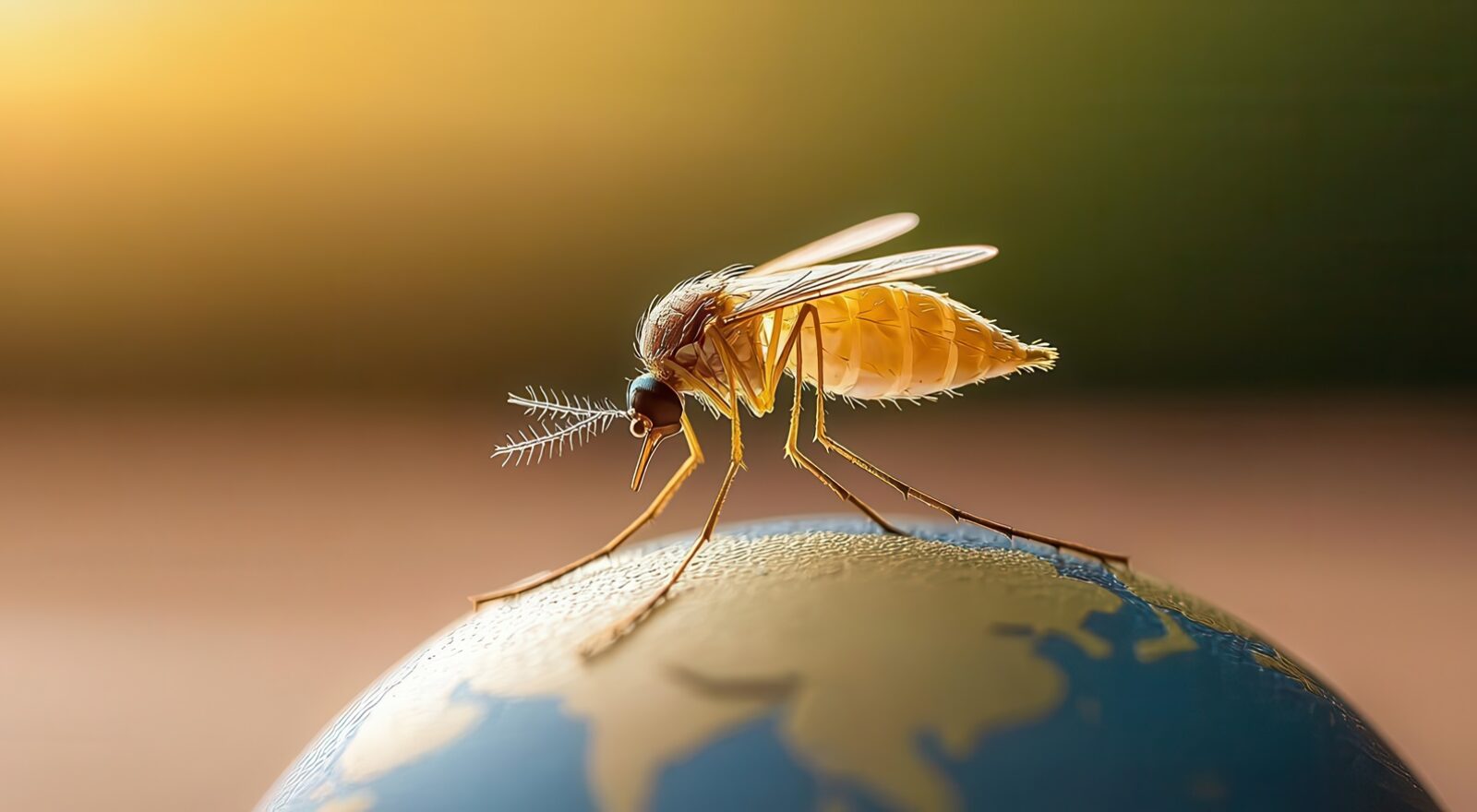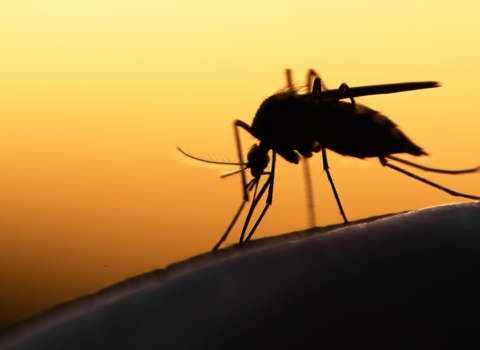
Tropical or European epidemics?
A review of indigenous epidemics of Dengue, Zika and Chikungunya that have developed in Europe over the past 15 years has been published by Lancet Regional Health Europe; no alarm but the growing trend calls for the development of new health policies that accelerate early detection of outbreaks, particularly in Italy.
The work was prepared by experts from the Department of Infectious/Tropical Diseases and Microbiology at IRCCS Sacro Cuore Don Calabria in Negrar in collaboration with Trento-based Fondazione Bruno Kessler, the Italian National Institute of Health, and the Universities of Brescia, Bari, Padua and Florence, and co-funded by the INF-ACT Research Program.
Homegrown epidemics of Dengue and Chikungunya are developing with increasing frequency in Europe due to missed diagnosis on travelers returning from tropical countries. Although the situation is not alarming, the trend calls for the development of new health policies that will accelerate early detection of outbreaks, particularly in Italy.
This is what emerges from reading the review published in Lancet Regional Health Europe, which contains data on indigenous epidemics of Dengue, Zika and Chikungunya in Europe from 2007 to 2023.
A work of very high impact, useful for directing health policies and the surveillance system, written by experts from the Department of Infectious/Tropical Diseases and Microbiology at IRCCS Sacro Cuore Don Calabria in Negrar in collaboration with Trento based Fondazione Bruno Kessler, the Italian National Institute of Health, the Universities of Brescia, Bari, Padua and Florence, and co-funded by the INF-ACT Research Program.
“Dengue is an example of this expansion trend of tropical epidemics even in our latitudes, which are fortunately still limited: in Italy, in 2024, a record number of cases with autochthonous transmission were recorded: 279, which are combined with 474 imported cases. The outbreak in Fano, Marche, with 199 infected people, all symptomatic and with Dengue virus identification was meaningful. Another smaller outbreak, 35 cases of the same virus, was detected in a municipality in the Emilia-Romagna region. In contrast, 10 cases were confirmed in Lombardy, while one outbreak with 8 cases was reported in Abruzzo. ” – noted Federico Gobbi, director of the department of infectious/tropical diseases and microbiology at IRCCS Sacro Cuore Don Calabria in Negrar (Verona) and associate professor of infectious diseases at the University of Brescia. – “In Italy, in the coming years ,we will most likely see increasingly frequent epidemics of dengue due to the rise in temperature that favors the survival and proliferation of the tiger mosquito, the vector of the disease.”
THE ITALIAN SITUATION PRIOR TO 2024
A large part of Italy is home to the Aedes Albopictus mosquito (tiger mosquito), so in addition to autochthonous dengue outbreaks (in Veneto in 2020, Lombardy and Lazio in 2023) there is also the risk of autochthonous transmission of Chikungunya, as evidenced by recent outbreaks in Emilia-Romagna (2007), Lazio and Calabria (2017).
FOUR-STEP PREPAREDNESS
The study provides a European overview of what has happened over the past 15 years, highlighting the increasing risk for countries such as France, Croatia, Spain, and especially Italy.
In recent years, cases of autochthonous transmission have gone up, and current climate trends could increase the spread of the Aedes albopictus mosquito, which is responsible for the transmission of arboviruses such as Chikungunya, Dengue and Zika and, consequently, accelerate disease transmission.
To be prepared, we need to plan defense strategies, assess the risk of transmission of these viruses, and estimate the likelihood of autochthonous outbreaks developing, so as to accelerate their detection and implement appropriate health protocols.
The first is to raise the awareness of health professionals, so that they know how to sense the presence of a possible outbreak as soon as possible: the difference in cases and size of outbreaks between Italy and France – where more clusters have been recorded than in our country, but confined to a few infected – is attributable to a greater habit of French physicians of dealing with travelers from overseas territories and a consequent greater familiarity in reporting potential cases to the authorities.
The second is to raise public awareness so that people are aware that an unwarranted summer fever could be due to an arbovirus.
The third is to reorganize microbiology laboratories and make rapid tests available.
Finally, there is a need to raise awareness among international travelers to promptly go to an infectious disease center in case of fever upon return from endemic areas so as to diagnose possible Dengue or Chikungunya and promptly activate tiger mosquito remediation operations near the home of the patient in question.
THE STUDY
The scientific study “Transmission of autochthonous Aedes-borne Arboviruses and related public health challenges in Europe 2007-2023: a systematic review and secondary analysis“. It is published in the journal “The Lancet Regional Health – Europe.”
Article -> https://www.thelancet.com/journals/lanepe/article/PIIS2666-7762(25)00023-7/fulltext
The research team was coordinated by the Department of Infectious/Tropical Diseases and Microbiology of IRCCS Sacro Cuore Don Calabria in Negrar in collaboration with Trento-based Fondazione Bruno Kessler, the Italian National Institute of Health, the Universities of Brescia, Bari, Padua and Florence, and co-funded by the INF-ACT Research Program.

Manuel Bertin – communication
coordinator Mobile 329-3548053 [email protected] web: https://www.inf-act.it
The One Healh
basic and translational research actions addressing unmet needs on emerging infectious diseases (INF-ACT) Foundation is coordinating an ambitious PNRR Extended Partnership project of the Ministry of University and Research on the topic of emerging infectious diseases, funded under the PNRR with 114.5 million euros.
This project comes after the experience of the SARS-CoV-2 pandemic: a clear example of how a new infectious agent can have devastating effects even in countries at the forefront of technology, health care and monitoring. An experience that highlighted the potential and responsiveness of modern multidisciplinary scientific research and the need for a new integrated and holistic approach in which human health is closely interconnected with animal and environmental health (One Health).
The INF-ACT project, therefore, aims to increase the monitoring and prediction potential, diagnostic and therapeutic capabilities, and multidisciplinarity of national scientific research on topics including viruses, antibiotic-resistant bacteria, vector insects, animal and environmental reservoirs of pathogens, and the human host.
This paradigm shift from a human-centered approach to a global view is the common thread running through the research activities of the 25 members of the INF-ACT project to increase the preparedness, readiness and response capacity of health systems and, ultimately, Italy’s resilience and resistance to epidemic and pandemic events. Thanks to the Cascade Calls, issued by the 5 spoke entities, more than 40 public and private research organizations operating on the national territory have joined the activities of the INF-ACT Foundation.


